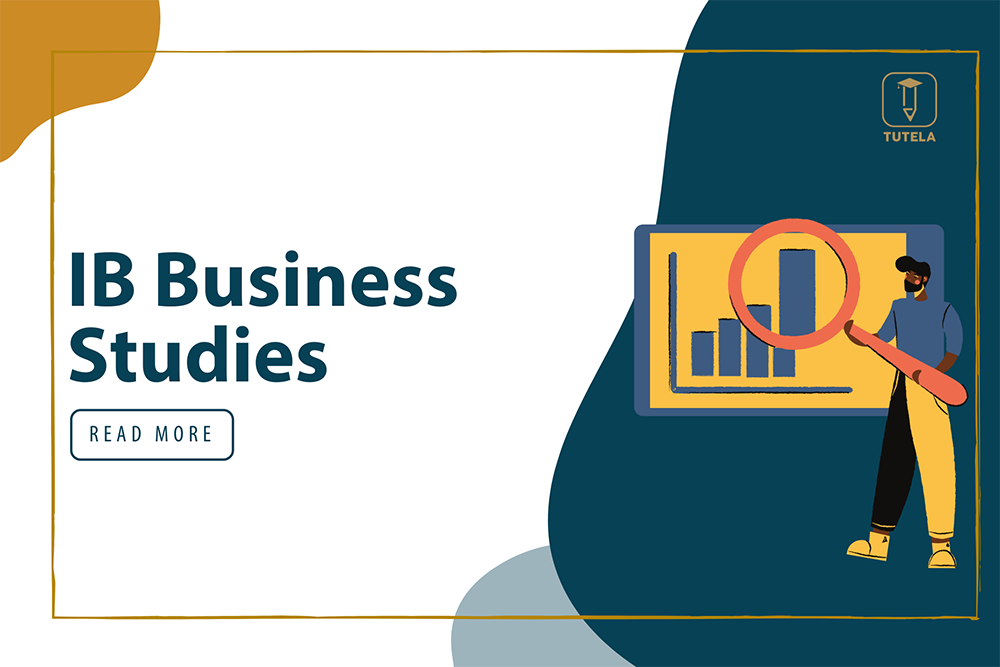
Subject Brief (Business Studies)
The IB diploma programme is developed in a precise and academically challenging method, designed to prepare students between 16 and 19 for success at their universities and life beyond that. The programme encourages students to be curious, interested, and knowledgeable towards their academics and caring and compassionate towards their fellow students. It fosters an intercultural understanding, open-mindedness, and an attitude that is necessary to respect and assess a variety of opinions and viewpoints of others. The teaching and, subsequently, the learning experience in this Diploma Programme is prepared with deliberate strategies, skills, and attitude that allows the students to broaden the horizons of their minds.
Course Description
The business management course is designed to develop students’ awareness, knowledge, and understanding of business management theories and prepare them to apply a range of tools and techniques learned in the subject to the real world. Students get to know, analyze, discuss and evaluate the day-to-day activities of the business on a local as well as a global scale. The course comprises a range of organizations from all sectors and the socio-cultural and economic contexts in which these organizations operate.
This course covers the key characteristics of an organization and its working environment, along with the business functions of human resource management, finance and accounts, marketing, and operations management. The linkage among these topics is central to the course. Through the exploration of six foundational concepts (change, culture ethics, globalization, innovation, and strategy), the course allows a student to evolve a complete understanding of today’s complex and dynamic business world. The conceptual learning is deeply anchored in business management theories; the tools and techniques in these theories that the students will learn are placed in the context of real-world examples of case studies.
The course encourages the students to appreciate ethical concerns at both local as well as global levels. It aims to develop relevant and transferable skills in the students, including thinking critically, making ethically sound and well-informed decisions, evolving long-term planning capabilities, and many others. This course also helps students to develop subject-specific skills such as financial analysis.
Curriculum Model and its Overview
Unit 1: Business organization and environment——————————–50
1.1 Introduction to business management.
1.2 Types of organizations.
1.3 Organizational objectives.
1.4 Stakeholders.
1.5 External environment.
1.6 Growth and evolution.
1.7 Organizational planning tools.
Unit 2: Human resource management——————–————————30
2.1 Functions and evolution of human resource management.
2.2 Organizational structure.
2.3 Leadership and management.
2.4 Motivation.
2.5 Organizational (corporate) culture.
2.6 Industrial/employee relations.
Unit 3: Finance and accounts———————————————-——–50
3.1 Sources of finance.
3.2 Costs and revenues.
3.3 Break-even analysis.
3.4 Final accounts.
3.5 Profitability and liquidity ratio analysis.
3.6 Efficiency ratio analysis.
3.7 Cash flow.
3.8 Investment appraisal.
3.9 Budgets.
Unit 4: Marketing—————–—————————–———————–50
4.1 The role of marketing.
4.2 Marketing planning (including an introduction to the four Ps).
4.3 Sales forecasting.
4.4 Market research.
4.5 The four Ps (product, price, promotion, place).
4.6 The extended marketing mix of seven Ps.
4.7 International marketing.
4.8 E-commerce.
Unit 5: Operations management———————————————-—–30
5.1 The role of operations management.
5.2 Production methods.
5.3 Lean production and quality management.
5.4 Location.
5.5 Production planning.
5.6 Research and development.
5.7 Crisis management and contingency planning.
Assessment Modal
The students are required to clear the following assessment objective towards the end of the business management higher-level courses;
1. Demonstrate knowledge and understanding of:
2. Demonstrate application and analysis of:
knowledge and skills in a variety of real-world and fictional business situations.
Business decisions by explaining the issue(s) at stake, selecting, and interpreting.
Data and applying appropriate tools, techniques, theories, and concepts.
The HL extension topics.
3. Demonstrate synthesis and evaluation of:
business strategies and practices, showing evidence of critical thinking.
Business decisions, formulating recommendations.
The HL extension topics.
4. Demonstrate a variety of appropriate skills to:
produce well-structured written material using business terminology.
Select and use quantitative and qualitative business tools, techniques, and methods.
Select and use business material from a range of primary and secondary sources.
Sample questions
Recommended Blog: How to prepare for IB Math Higher Level?
For any help, feel free to contact us by filling in our student assistance form.
SOURCE: https://www.ibo.org/